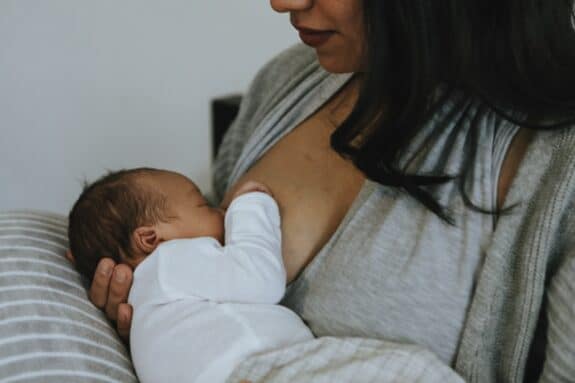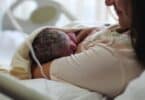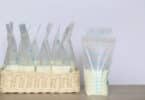Breastmilk offers a whole host of benefits—everything from decreasing a baby’s risk of developing diabetes and allergies to protecting them from certain illnesses, such as measles and the flu. This protection comes from the special antibodies and proteins found in breastmilk—and as a nursing mother becomes sick or gets immunized, that profile changes to provide even further protection to the baby.
The potential benefits extend beyond babies, too. Science has found that these antibodies and proteins can neutralize bacterias and viruses in adults as well. They can even be used therapeutically to treat cancer and rabies.
Then came along COVID-19, a new illness that we knew nothing about.
For parents, the biggest concern was that no one knew whether breastmilk could transmit the virus (like HIV), or if it offered the baby protection. Thanks to the dedication of one New York City research team, we may have our first shred of evidence that suggests infected mothers could pass along immunity to their babies through nursing.
Rebecca Powell, a human milk immunologist, and lactation consultant was studying breastmilk antibodies and proteins when the pandemic hit. Powell saw it as an opportunity.
Her lab, like others, had found “a really strong antibody in milk against flu.”
“It seemed obvious to me that everything we don’t know about flu [and breastmilk] is a million times more unknown and relevant about COVID-19,” Powell said. “I immediately felt the urgency to initiate a study.”
Powell had such strong conviction that she spent countless hours, trekking across New York City to collect milk from lactating women. (Don’t worry; all the pickups were “no contact.”) She even crossed three boroughs to reach a mother infected with the virus.
An assistant professor of medicine and infectious diseases at Mount Sinai’s Icahn School of Medicine who studies the immune properties of human breast milk, Powell and her team studied the acquired milk (15 samples from infected mothers and 10 from non-infected moms). Her team found that 80 percent of the infected samples carried a “strong COVID-19 immune response.”
While these results are only preliminary, they come at a critical time—when we really need to know whether mothers should even continue nursing after the infection. Hopefully, this data will be enough to put everyone’s mind at ease. More than that, we hope it encourages even more moms to breastfeed as they welcome their new babies into a COVID-19 world.







